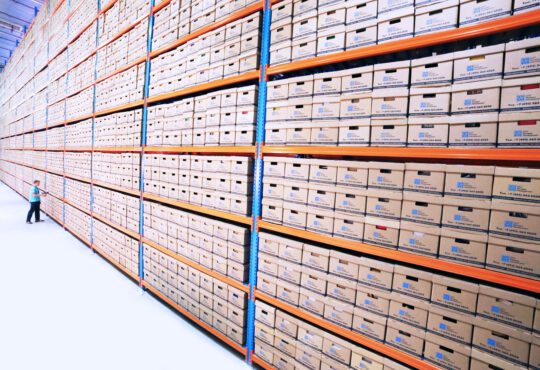
So, what is a warehouse management system?
A warehouse administration system (WMS) is a type of software regularly manange operations in a warehouse including inventory administration, picking procedures, and auditing.
A WMS is an instrumental the main supply sequence, the primary goal of which can be to track and control the activity and storage of
item or materials within a warehouse, and process the associated stock actions, including: receiving, including, choosing, quality
control, shipping, reporting, and forecasting, by the addition of listing and channel administration, should the company be involved in e-commerce. A warehouse administration system streamlines and facilitates procedures and a product’s trip through the warehouse; for instance, these types of systems will direct and enhance picking by utilizing real time inventory information to look for the appropriate warehouse place to access the item from.
“A warehouse administration system streamlines and facilitates processes and an item’s trip through the warehouse”
More precisely, warehouse administration involves the receipt, storage, and activity of goods, (typically done goods, but kits are often handled by a sophisticated WMS), to intermediate storage space places or even to a final customer. Note that a warehouse administration system can manage numerous warehouses simultaneously; a good example of such an arrangement might be a central warehouse, a regional warehouse (serviced because of the central warehouse) and retail warehouses (serviced because of the regional warehouses).
The aim of a warehouse management system is always to supply some computer computerized treatments for management and tabs on warehouse stock utilizing the aim of reducing cost and fulfillment times and streamlining warehouses procedures.
Top features of a WMS:
- Receiving and comes back: The receipt of stock and comes back into a warehouse facility. An efficient warehouse administration system assists businesses cut costs by minimizing the quantity of unnecessary parts and items in storage (maybe not a lot of in stock). likewise, a WMS helps in avoiding out-of stocks (aka OOS, stockouts, oversells, etc.) by maintaining precise real time volumes (not inadequate in stock). A warehouse management system’s primary purpose is to maintain the proper balance of inventory.
- Warehouse Logistics: Modeling and managing the reasonable representation of physical storage space facilities (e.g. racking, etc.). If certain items are frequently offered together or are more popular than others, those items are grouped together or put near the delivery location to speed up the process of selecting, loading and shipping to customers.
- Integrations: Enabling a seamless link to purchase processing and logistics management to choose, bring, and ship item out of the center. ? In the event that system is managing an eCommerce business’s inventory, integration with a channel management software might-be needed in order to keep track of product sales from seller’s numerous on line marketplaces.
- Reporting & Forecasting: Tracking product locations, suppliers, and storage duration allows companies to control inventory levels and maximize the use of warehouse space. This practice of analysis better prepares businesses for the demands of the market, especially during unique circumstances such as a peak season, holidays, or during daily deals. Via the reports generated by the inventory management system, much can be discerned, such as best-selling SKUs, target price range, fastest moving SKUs, SKU history, etc.
Obtaining & Returns A great WMS could keep an eye on your inventory. An excellent WMS can tell you whether it’s enroute to Amazon, customers, between warehouses, etc. We possess the quickest sync in the industry which means you also have real-time volumes rather than oversell.
Integrations Just costly ERP’s offers everything you need to operate every face of company. Don’t be fooled by a WMS that says they are doing it all- alternatively choose for one with an open API that integrates with other specific software.
Advanced Reporting Not all WMS is made equal. Choose a WMS that goes the extra mile and can aggregate important computer data into actionable information. Advanced stating functions supply you with the most out of your warehouse, items, and workers.
There are numerous types of warehouse administration systems; they could be standalone methods, or modules of an ERP system or offer sequence execution package. Dependent upon the size and sophistication of this business, the device is as simple as a series of handwritten lists which are updated whenever needed, spreadsheets utilizing pc software such as for example Microsoft succeed or Access, or a far more growth-oriented, purpose-built software program.



